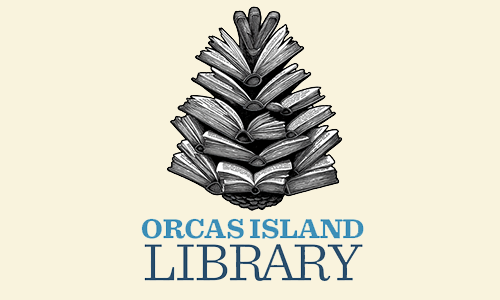A message from the Board of Commissioners
— from Anne Presson for Orcas Island Health Care District —
As we previously reported to the community, the Orcas Island Health Care District is facing escalating practice subsidy costs, challenges in providing island appropriate care, and staffing issues in our existing system. We are not alone in facing financial problems. Rural medical practices across the country are struggling. Many have closed their doors or reduced their services.
Rural patients, like patients on Orcas, are older and in poorer health, so they need more medical services. Also, they are more likely to have Medicare or Medicaid rather than employer-provided insurance. 64% of the patients seen on Orcas have either Medicare or Medicaid. This is significant as Medicare only pays about 3/4s of what private insurance pays while Medicaid pays less, only about 50%.
These challenges have led the District to explore other ways to structure the local delivery of healthcare to achieve financial stability while providing island appropriate quality primary and acute care. We are researching three possible structures for enhancing the revenue practitioners receive for providing primary care on Orcas: Rural Health Clinic (RHC) status; Federally Qualified Health Center (FQHCS) status; and partnership with a hospital with 50 beds or less.
RHCs and FQHCs were created by Congress to provide financial support for rural medical services. Medicaid and Medicare both pay RHCs and FQHCs based on their cost of providing services rather than using the much lower Medicare physician fee schedule. The Orcas Family Health Center is already
qualified as an RHC. When Island Hospital operated the Orcas Medical Center it was an RHC, but that status was lost when UW took over its operation.
In addition to receiving cost-based reimbursements, FQHCS can apply for annual grants of up to $650,000 to help them improve their medical services. However, FQHCs are required to provide a broader range of services than RHCs, either directly or through contracts with other organizations. We are exploring whether the FQHC requirements are an appropriate fit for the island’s health care needs.
Another option is partnering with a small (less than 50 beds) hospital. Under Medicare’s rules some services provided on the island could be billed to Medicare at the hospital’s much higher outpatient services billing rate. The Orcas Medical Center’s partnership with Island Hospital generated an extra $300,000 per year in fees. Some of the Medicare reimbursement rules have changed since Island Hospital left, however, so that option may be less attractive now.
We are hiring a consultant to quantify the reimbursement benefit of each of the three options. That information will help guide our decision on how to address the challenges we face. As we search for a solution, we will share details of our efforts at our regular Board meetings. We encourage you to attend those meetings or read about our progress by visiting our website at www.orcashealth.org to access our meeting minutes. Contact information for Commissioners and our Superintendent can also be found on our website.
Once we have more information to guide our decisions, we plan to hold public meetings to present our findings and recommendations for a path forward and to hear public input. Excellent health care on Orcas is vital to all of us. We welcome your input as we move forward.
**If you are reading theOrcasonian for free, thank your fellow islanders. If you would like to support theOrcasonian CLICK HERE to set your modestly-priced, voluntary subscription. Otherwise, no worries; we’re happy to share with you.**








To our HCD Commissioners, a basic question: Can this small community continue to support two separate heal care providers? I have been a patient of both clinics and I appreciate each practice’s capabilities and limitations. But after following this issue for some time, it seems rather obvious to me that Orcas does not have the resources or the patient base to adequately fund both the Family Health Center and the UW Clinic. What am I missing?
If rural hospital districts in Washington and other states are struggling with this issue, has another rural hospital district analyzed these three options? Is a paying a consultant going to give answers that already have been obtained for another district? Can awphd suggest another hospital district that has compared reimbursement rates? It seems a shame to pay a consultant if the work has been done elsewhere.
I am puzzled how the District can be little more than a year old and already “facing escalating practice subsidy costs, challenges in providing island appropriate care, and staffing issues in [the] existing system.” Little has changed since the proponents had the put on the ballot.
I sincerely hope that the District does not intend to take on responsibility for the formation or operation of any health care provider, be it RHC, FQHC, or based in a relationship with a small rural hospital. The District is already spending most of its levy authority and still has not established the after-hours care that was the principal reason espoused for the new tax district. Moving from a subsidy model to a District-operated model would subject the taxpayers to almost bottomless costs while Congress continues to fiddle on the issue of health care. Most taxpayers already struggle to pay for their own health insurance premiums and steep deductibles. Assuming an open-ended obligation to cover the costs of all comers to a District clinic makes no sense. Our time and taxes would be better spent lobbying hard for a national solution.
* had the proposition put on the ballot.
The question of one clinic or two [or more] is muted by recent developments. It seems that for good reason the question was never resolved beyond the understanding during the PHD debates that there would be no initial divisive preemptive action taken beyond maintaining the status quo ante.
Though various means were used to investigate coordinating and combining the two practices including sharing the X-ray, and investigating the details of moving both into the Medical Center building, events overtook us and has forced the understanding that neither practice in any configuration would be sustainable.
To ask “how can this be?” simply inderlines the reality we are facing in rural healthcare today. To repeat it begins to sound like denial. It is an education all in itself.
My understanding is that after much research and innumerable phone calls to PHDs across the country, our devoted commissioners principly Art, have determined that there are NO PHDs exactly like our Orcas’ own. Lopez is similar. Isolated communities in Alaska[!] bear some likeness as well. But none share our size, our demographic, our in/accessibility, or our history and expectations. Such as they are known.
So we have gone at it the other way around, researching our options, then initiating relationships with PHDs that have tried out these options. This has seemed very fruitful, you should ask for details. It’s a bit wonky, and you have to do your homework. But the fact remains that like any education, paying a bit for objectivity and informed perspective can save you countless effort and costly empiric churn, er, ..trial&error. This makes sense?
Once the clinic structure *we *choose *to *fund is determined, we can invite a practice group to inhabit it. A little like providing a beehive with the wax combs ready to fill then finding a healthy swarm to occupy it. . so all our healthcare fruit and vegetable patches can be cared for… is how I see it.
It’s a good plan.
If practicing law exclusively in the area of health care reimbursement for 30+ years, both inside the federal government (Medicare and Medicaid) and in large national law firms, has not equipped me to express concern about the PHD taking on direct legal operational responsibility for the operation of a healthcare facility here, I’m not sure what does. If the PHD is considering simply making the existing, community-funded facility available to a group of interested physicians recruited to move here and start a practice, that’s one thing. Assuming responsibility for creating and operating an RHC or FQHC is another thing entirely, and brings with it legal responsibility for quality and billing errors, overpayments, and liability under statutes such as the False Claims Act. The latter was not presented to the voters as an option when the PHD was put on the ballot, so far as I recall.
An additional note: Payment models in the federal programs are subject to change with relatively little notice, and some such changes are already underway or “promised” by the current administration. Neither of the clinic models discussed is likely to continue to be a solution, at least not for very long.
The Health District Commissioners are doing a good job by considering several options. Hiring a consultant is a good idea, since each community needs to be assessed individually to determine which federal or state programs it would qualify to undertake. For example: Orcas has a large number of temporary residents, including visitors and migrant/seasonal workers, meaning that 2/3 of the folks passing through our community annually have no primary health care home or urgent care facility on island. That could qualify Orcas for certain ongoing federal funding options.
A facet of a Federally Qualified Health Center (FQHC) is that 51% of the its board of directors of the medical practice must be patients of the clinic, ensuring a responsiveness to the local community. Accountability and local control were key interests for voters who approved the hospital district.
Both FQHCs and federal Rural Health Centers (RHCs) thrive when their patient payer mix is more than half Medicare and Medicaid, because they receive full-cost reimbursement from Medicaid instead of losing money on those patient visits as private practices do. Because medical providers are “deemed” federal employees, their malpractice insurance is covered through the Federal Tort Claims Act, a significant savings to the business.
Finally, FQHCs receive an annual award of $650,000/year in perpetuity and can apply for additional grants to expand their family practice, mental health, dental and other specialty services. For more information, the National Association of Community Health Centers’ website is: http://www.nachc.org/
“If the PHD is considering simply making the existing, community-funded facility available to a group of interested physicians recruited to move here and start a practice, that’s one thing.”
That IS the thing.
The Commission is putting together a prospectus for the consideration of those wishing to participate. Becoming a clinic was never under consideration according to the minutes of this discussion that are up for review.
Becoming an FQHC [or FQHC-“lookalike”] would put us in the community of rural clinics creating innovative public health programs that address local needs and local conditions. This has gained increasing Federal support for example for “Enabling Services” which improve clinical outcomes in underserved areas. Like Orcas. It will require a sustained effort by a community work group to meet the qualifying criteria. We should not be overly wowed by the $$ on offer, but by the opportunities an FQHC allows for improving health services here.
“FQHCs are non-profit providers that receive grants under Section 330 of the Public Health Service Act and have governing boards with representatives of the communities they serve. Health centers provide comprehensive primary and preventive care to patients regardless of the ability to pay, and are a key component of the nation’s safety net, serving the growing numbers of uninsured. In this report, we focus on enabling services at health centers because enabling services are critical for health center patients. Furthermore, more information on *enabling*services* at health centers can inform the development of strategies, or ‘best practices,’ for providers who serve diverse and vulnerable populations.”
[www.aapcho.org/wp/wp-content/uploads/2012/03/ES-Metlife-Report.pdf]